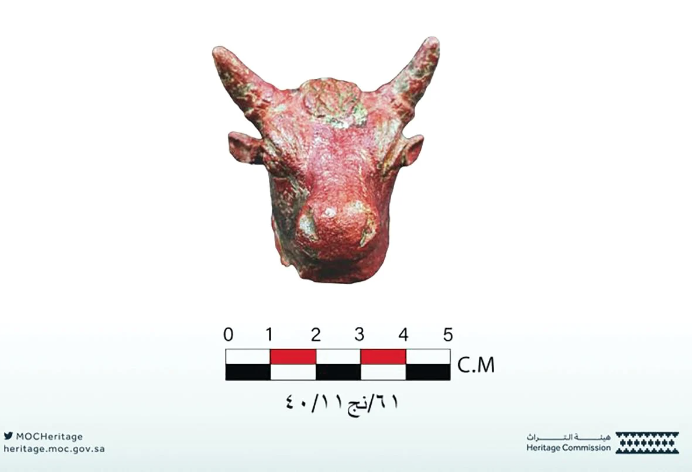A 1400-year-old pre-Islamic inscription, 3 gold rings and a bull bust have been discovered in the Arabian peninsula. The discovery of the inscription, consisting of 32 cm long letters carved on a granite stone about 230 cm long and 48 cm high, was met with great excitement because it contains the Musnad alphabet.
Archaeologists working at the Al Ukhdud excavation site in the Najran region of Saudi Arabia have discovered the longest known inscription to date, written in the pre-Islamic South Arabic script. Archaeologists also found 3 gold rings with butterfly motifs and a bronze bull’s head. It was announced that the inscription with text in the old South Arabic alphabet and the other finds are important and rare relics from the pre-Islamic period.
Announcing the discovery of the pre-Islamic artifacts on Twitter, Saudi Arabia’s Ministry of Heritage said the discovery “sheds a unique light on the ancient culture” in the south of the country. The ministry called the discovery exciting and described the finds as ‘rare’.
The bronze bull effigy found during the excavations, estimated to be more than 1,400 years old, is reportedly undergoing restoration due to oxidation. Experts believe that the bull’s head was one of the most common objects among the kingdoms of southern Arabia in pre-Islamic times and was popular among many Arab tribes as it symbolized power and fertility.
It is also emphasized that the bull was the most important symbol, especially in the kingdoms of Maîn, Sabae and Qataban. The Al-Ukhdud region also yielded pottery, the oldest of which is estimated to date back to the 3rd century BC, and a large number of terracotta jugs of various sizes.

Thought to be more than 1400 years old, the bronze bust of a bull is undergoing restoration due to oxidation.
OF A WATER CARRIER
The inscription, consisting of 32 cm long letters carved on a granite stone about 230 cm long and 48 cm high, is of special importance because it contains the Musnad alphabet. Experts say that the inscription is the longest text found in the region to date, and that it is understood to belong to a man named Wahib Eil bin Magan, who is said to have worked as a water carrier, but it is not known whether this person hung it in his house or palace.

